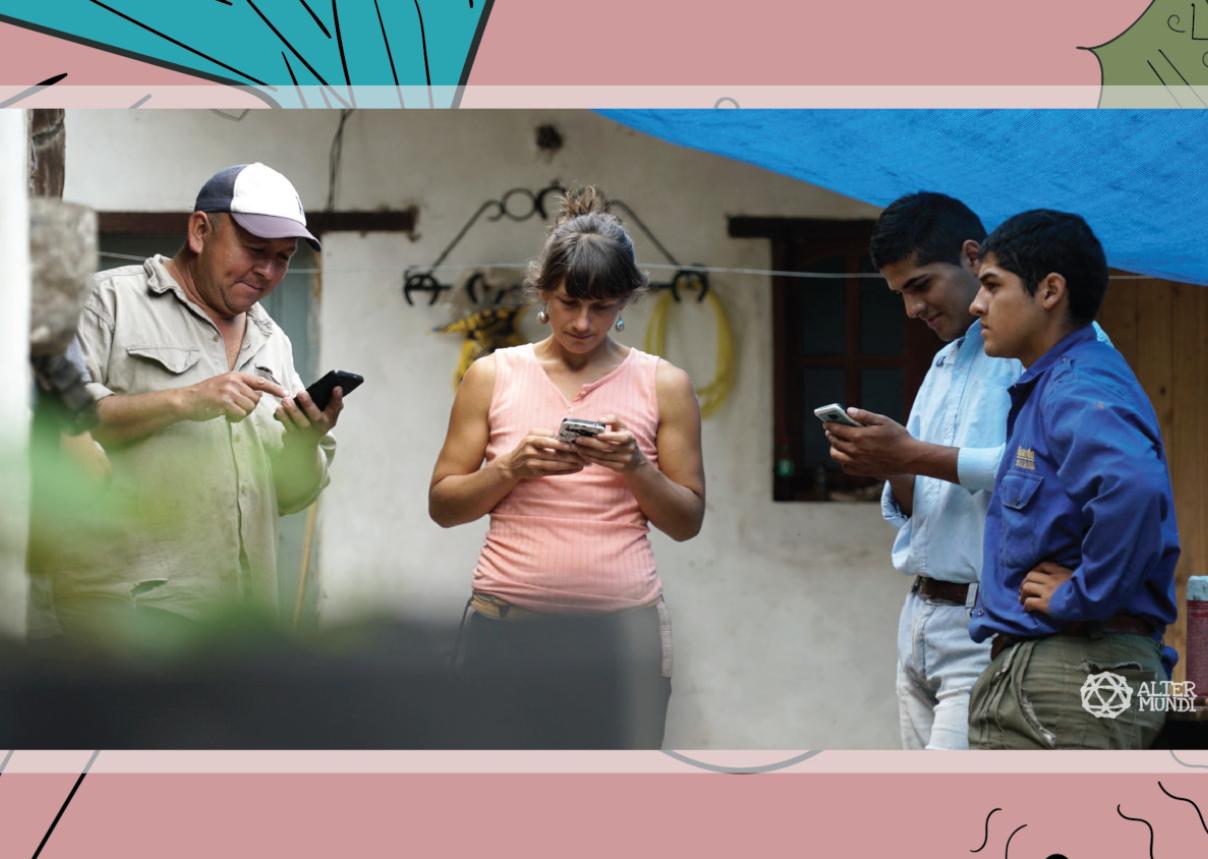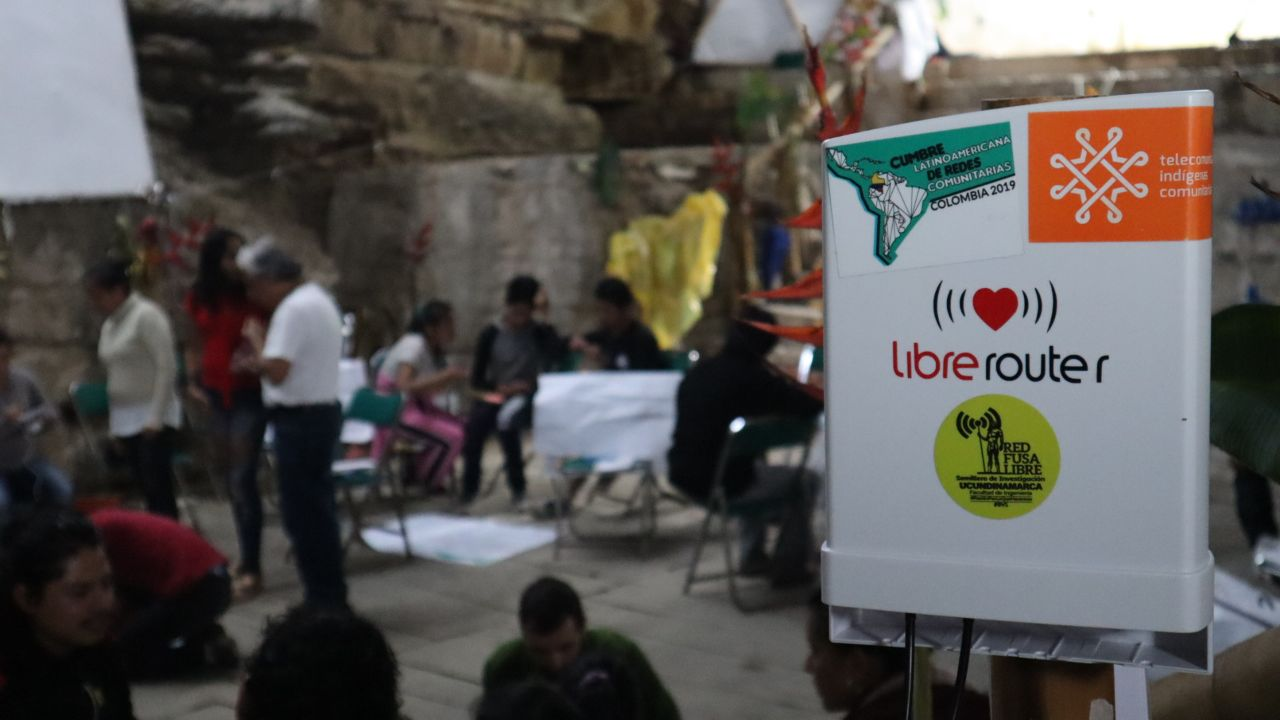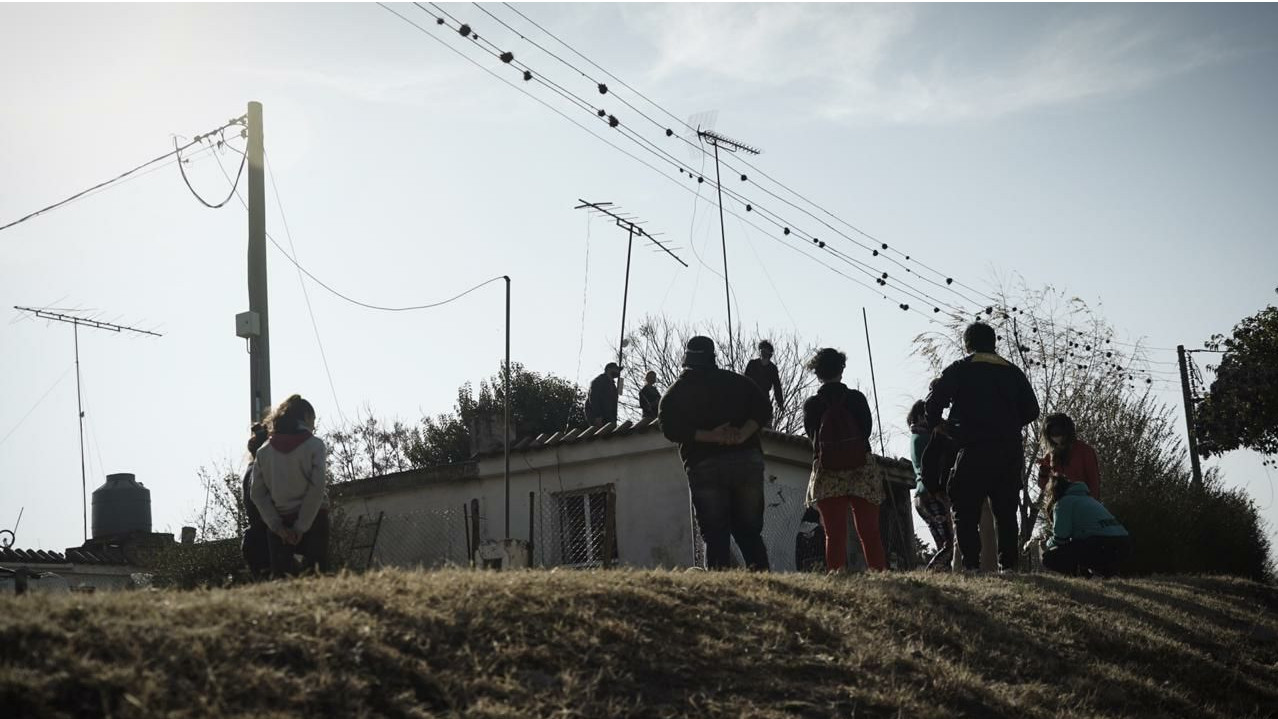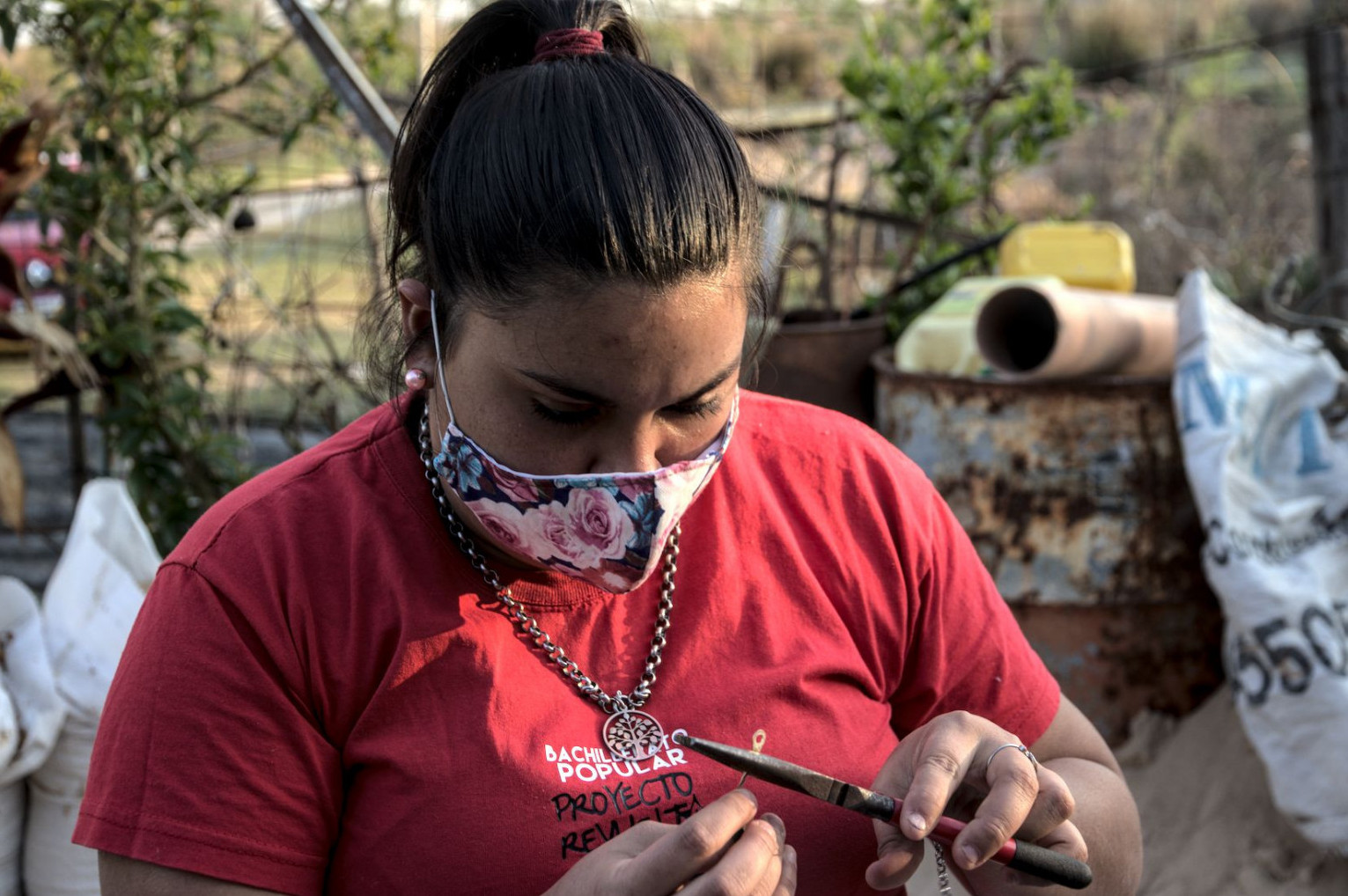
The life-altering COVID-19 pandemic posed obstacles to community network projects around the world. To these types of networks, which are locally and collectively built and managed, being together is vital and the pandemic-enforced social distancing was overwhelming.
Argentina, however, saw many community networks flourishing and upholding the country to implement unprecedented policies to support those bridging the digital divide on their terms during those difficult years. And the key to this was the awareness of where the most valuable knowledge is: within the communities.
The recognition of the protagonism and autonomy of the diverse communities scattered across the country was combined with the support of a network of stakeholders with various roles, from donors to national and international civil society organisations as well as the country's government agencies. The journey of APC's member, AlterMundi, during these years helps one understand how the country attained significant achievements in such challenging times: this was a change built by many hands; but most importantly, by respecting the grassroots knowledge.
Bridging change
For years, AlterMundi has been accompanying communities in its projects in rural areas of Argentina through training, advice and accompaniment activities. In its own words, AlterMundi comprises an "experienced group of activists of free community networks and free software, who joined forces to form an NGO that facilitates the deployment of these networks in digitally excluded areas, contemplating the particular characteristics of our region.”
With its feet firmly on the ground, AlterMundi is also well positioned to look for the different aspects that could create a more enabling environment for community networks emergence and sustainability – from training to influencing policy and regulationto crafting materials and equipment that respond to local needs.

AlterMundi is behind the development of the LibreRouter, an open source hardware Wi-Fi router designed from the ground up for community networks. The learning exchanges with the communities have fostered feedback between the field experience and the development and documentation of the LibreRouter technology stack.
Flourishing in challenging times
The journey of the community networks movement had begun a while before in Argentina. During the Argentine Summit of Community Networks (or CARC, as it is known by its Spanish acronym) in 2019, members of these communities stated their right for access to the internet and expressed a common goal: promoting the popular appropriation of technology. The following year, the whole world faced the life-altering pandemic of COVID-19, which could had been a huge obstacle to the flourishing of the community networks in the country. But in reality, what happened was the opposite.
When the CARC participants selected which communities among them were in a position to deploy their own community networks in the context of the pandemic, AlterMundi got support from different partners such as APC, 48percent.org and Internet Society, to promote the training and accompaniment these communities needed in 2020.

AlterMundi adapted its approach and methodologies in the context of the COVID-19 pandemic. Activities in rural communities, for example, were possible given the abundance of open space and possibility of social distancing.
When connectivity is built in a collective and participatory process, its impact can go far beyond digital inclusion. These communities are reclaiming their right to communication and technology self-determination, instead of merely connecting to the internet for the sake of it. "It's about considering the right to be communicated and networked under a new light, under a different logic,” said Limara, a community member from the MonteNet network in Córdoba in the documentary, Comunidades Haciendo Internet – Nuevas Redes.
In the end of the joint effort, several new community networks began to inhabit the digital territory in Argentina: LibreGrandeNet (Córdoba), Los Molinos Comunitaria (Córdoba), Rio Los Sauces (Córdoba), MonteNet (Córdoba), RedVuelta (Santa Fe), Comunidad Rio Salado (Salta), Red Perilagos (Jujuy), Internet Comunitario Rinconada (Jujuy), Gallinato Libre (Salta) and Lesser Libre (Salta).
These community networks were created locally to serve people of all backgrounds under their own needs and interests. As beautifully summarised by AlterMundi in this article:
"They are bits of the internet co-created and self-managed by their own communities according to the needs of each one of them.
They are neighbors who needed the internet for their sons and daughters to do their homework.
They are teachers who have to telework in places where there are no broadband providers.
They are producers of goat cheese who live in the middle of the mountains.
They are workers from the popular economy who cannot give away a high percentage of their income to data subscriptions from mobile phone companies.
They are the inhabitants of towns with dirt streets.
They are rural workers who have the right to communication.
They are the boys and girls of a popular neighborhood.”
"

Community networks are digital networks self-managed by people who organise themselves in non-profit models to resolve their own connectivity situations by exercising their right to communication, explains AlterMundi, based on the context in Argentina.
Local knowledge improving the national policy
"With these deployments, we are better positioned when it comes to holding conversations with public, private and civil entities,” said AlterMundi in a report sent to APC in 2020 about a subgrant of the Connecting the Unconnected project, conceived to support the update of its methodology to the pandemic scenario as well as that of the community networks emerging that year. Since then, AlterMundi has played a vital role alongside the CARC organisations, providing local knowledge to policy and regulations discussions aiming to foster more meaningful responses to the myriad challenges across the country.
In recent years, Argentina announced groundbreaking policies to support community networks through the implementation of state financing programmes, such as the Barrios Populares and the Roberto Arias programme. "The first one is aimed at shanty towns and incorporated community networks among the ICT licensees eligible to apply in 2020. On the other hand, the Roberto Arias programme was created specifically for community networks in rural areas of up to 5,000 inhabitants in 2021,” explains Mariela Baladrón in her article in the book, Community Networks: Towards Sustainable Funding Models.
While many countries still insist on top-down approaches – hence far insufficient to bridge the digital divide – these programmes were seeded in participatory processes and incorporated community networks as beneficiaries of Argentina’s Universal Service Funds. This is not a coincidence. The strong community networks movement has provided the necessary conditions for the design of more complete and efficient access policy and regulation.
Community networks encourage reflection about how and why people will be connected. They have been raising a point to regulators: the lack of connectivity is often another gap in the multiplicity of neglected rights. Instead of insisting on external solutions, programmes should place the voices of the communities who live these realities at the centre of the response to the digital divide.
"Often, both the state and the commercial sectors do not know how to create programmes or projects because they do not understand the realities of these communities. These communities are the ones who have the most valuable knowledge,” explained AlterMundi member Jésica Giudice during the Forum of Community Networks in Colombia in 2022.
"For me, the most important thing about community networks is that they are made from within the community and are the only ones that have the capacity to adapt technologies and connectivity projects and the production of local content to their lived reality,” she concluded in her inspiring way.
Keeping that in mind, the partnership with communities is an ongoing process to deal with emerging challenges. In 2022, AlterMundi launched a Semillero, or Seedbed on a free translation – an initiative to foster the exchange of knowledge, designed in this case to support the community networks to deal with state bureaucracy and apply to the Roberto Arias programmes. And in 2023, the organisation is visiting the communities to provide face-to-face support and look after the relationships and goodwill built over the years. The bottom-up changes seeded continue to be nurtured by AlterMundi.
Seguimos visitando comunidades que participaron del #Semillero2022 de #RedesComunitarias de #internet
3° PARADA: Tostado, #SantaFé
Nos recibieron Luci, Selena, Cristian y Jesús y trabajamos en el proyecto que se postulará al #RobertoArias de @ENACOMArgentina pic.twitter.com/x0U4TD3X5f
— AlterMundi.net (@AlterMundiNet) January 24, 2023
Photos: AlterMundi
This piece is a version of the information provided by AlterMundi as part of the project “Connecting the Unconnected”, adapted and updated for the Seeding Change column. This column presents the experiences of APC members and partners who were recipients of funding through APC's core subgranting programme, supported by Sida, and of subgrants offered through other APC projects.
Did this story inspire you to plant seeds of change in your community? Share your story with us at communications@apc.org